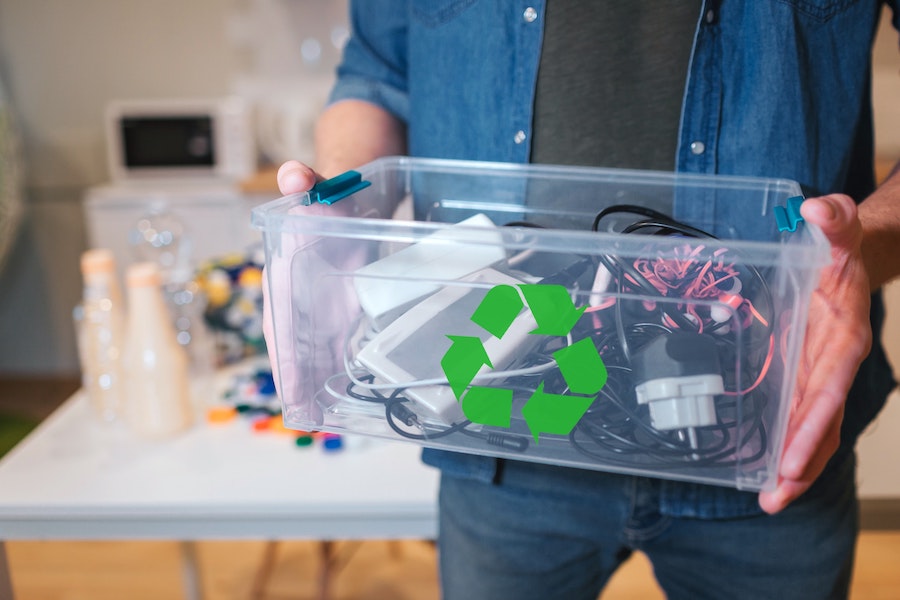What should you do with your e-waste?
Practically every household has an odds and ends drawer, bursting with cables, stuffed with plugs, chargers, old phones (including that brick of a Nokia you can’t quite bear to part with), and even the odd Walkman or Tamagotchi you know will never be revived.
For some reason we hold onto this electronic junk, partly out of nostalgia and partly because surely, it’ll come in handy one day… won’t it?
While some of these appliances we cling to, a lot is still going to waste. In fact, according to a UN report, 50 million tonnes of e-waste is generated every year, a figure predicted to more than double to 110 million tonnes by 2050 – it’s now the fastest growing form of waste globally.
To help combat e-waste & #BeatPollution, an ambitious initiative in Nigeria aims to see the nation adopt a financially self-sustaining circular economy approach for electronics. https://t.co/FZtxSrELwx
— UN Environment Programme (@UNEP) February 14, 2020
The UN’s next Global E-Waste Monitor is set to be released in April, but you can start making a difference now when it comes to disposing of your own waste electrical and electronic equipment (WEEE). Here’s how…
Repair it
Given up on your iPod because the sound is off, or your formerly great telly has decided it’s a black and white TV now? Paying for a quick repair job could save you a fortune on buying replacements. Community and social outfits like the Restart Project – and various others around the world – also run sessions to help people repair broken electrical items themselves. It’s a chance to learn a skill, meet new people, and extend the lifespan of your tech kit.
Reuse it
Your phone company may have offered you an upgrade, but is your current phone working absolutely fine? In theory you could buy a new radio that fits the colour scheme of your room, but is the boring grey one you have already doing a solid job? When faced with the prospect of an electrical item’s new release/version/model, maybe consider whether you have an alternative at home that’s going strong, one you can continue committing to and reuse.
Recycle it
Valuable precious metals and elements in WEEE can end up wasted if household items aren’t correctly recycled. Look into your local authority’s e-waste regulations and disposal points. Alternatively, many electronics retailers collect recyclable e-waste.
Donate it
Not everyone is able to buy a new phone, or pick up a new washing machine when they need one. And there will be schools, charities, charity shops and church groups only too happy to take old laptops, radios and tablets off your hands, as long as they are in good working order. Just remember to wipe all your personal information before donating.
Donated this yesterday to an E-waste drive. This is one of my feeling adult purchases in my early 20s and has served me well. pic.twitter.com/ruo2g2XTX7
— Kea (@triksine) February 16, 2020
Sell it for parts
A brief browse on eBay will tell you that almost anything can be stripped for parts, and there will be someone out there keen to buy your random cables, hulking laptop and retro flip phone. You’ll be able to put the proceeds towards a more up-to-date replacement.
The Press Association
Latest posts by The Press Association (see all)
- 3 easy Mary Berry recipes to make this season - November 22, 2024
- In Pictures: Party stalwart kept New Labour in touch with traditional supporters - November 21, 2024
- 6 easy indoor exercises to try this winter – and why they are good for you - November 19, 2024
- Martin Clunes: I can’t afford to retire – I’ve got too many horses - November 19, 2024
- How to avoid plant losses, flowering disappointments and container catastrophes - November 17, 2024





















